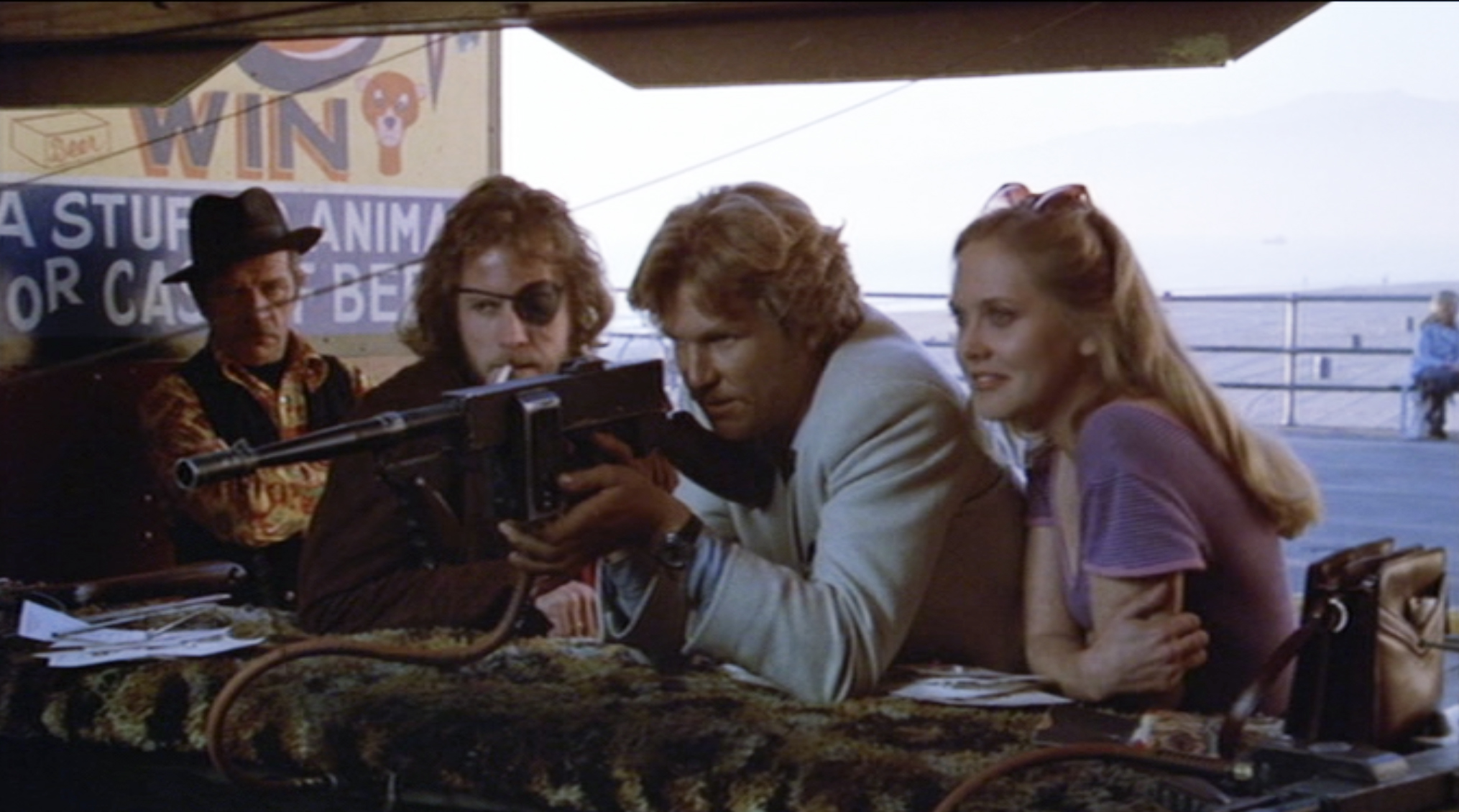The Fog of War
Cutter's Way was a failure when it was released in spring of 1981 as Cutter and Bone, and it didn't fare much better when it was re-released six months later as Cutter's Way. Unlike other films of the era that touched on Vietnam, this film didn't provide the easy out of bedeviling the war or excusing its characters' flaws as products of inflicted trauma. Defining Cutter's Way as a post-Vietnam thriller that shows America's loss of hope after the war is not accurate: Cutter's Way is a film which argues that anyone who ever had hope to begin with is a damn fool.
John Heard's Alex Cutter is a disabled Vietnam vet who defies pity because he's a vicious, crass, hilarious drunk that lives to get a rise out of people. His old friend Richard Bone, played by Jeff Bridges, is a part-time salesman and a part-time gigolo who rooms with Cutter and Cutter's wife Mo (Lisa Eichhorn). Headed home from a late-night tryst, Bone's car breaks down and he leaves it for the morning in an alley near downtown Santa Barbara. He's roused early by the police who have traced his car. Turns out, last night that same alley was the scene of a brutal murder of a teenage girl who was strangled and dumped in a trash can. After hours of interrogation, Bone is cleared as a suspect and washes out his jail-head in the Santa Barbara sun at the "Old Spanish Days" fiesta celebration with Cutter and Mo. During the parade of prominent townsfolk on horseback Bone sees a man that looks very familiar, a man just like the one he saw in that alley last night while leaving his car. The familiar face turns out to be that of JJ Cord, a prominent local businessman and a symbol of capitalist wealth.
Bone quickly dismisses his comparison between Cord and the man in the alley, but Cutter won't let the comment lie. To Cutter, it all fits together—a rich, corrupt businessman murdering with impunity, dumping girls all over town and having the money to wriggle out of any charges or suspicions. Cutter begins digging into Cord's personal life, which stirs up his resentments toward the wealthy; toward an America that would send him overseas to be maimed without purpose; and eventually toward his old friend Richard Bone.
It's not discussed too often in the film but the Vietnam War looms over every scene in Cutter's Way as a destructive force that defines the guilt and motivations of Cutter and Bone. It becomes clear that Cutter isn't so much concerned with justice for the dead girl as he is with nailing Cord: "He's responsible! Not just for the girl, but for everything! Him and all the motherfuckers just like him." Both Mo and Bone tire of Cutter's persistence in investigating what's really a tangential event in their own lives. But every time it seems like Cutter's sense of reality is clouded by his anger, he uncovers more evidence that supports the reality of a conspiracy.
Cutter's Way is as grim as it gets, but there's a strong molasses drip of black humor that runs throughout the film. It's the gallows humor of a trio convinced of the futility of dreaming, but funny nonetheless. The ending of the film comes as a shock—not because it's unexpected, but because it's so perfect. This is a film that has the guts to finish what it starts, to pay tribute to its characters by carrying out their final wishes.
Cutter's Way is available on Blu-ray from Twilight Time. Subscribe to Sleeping All Day.
Check out the clip below from the film---->







